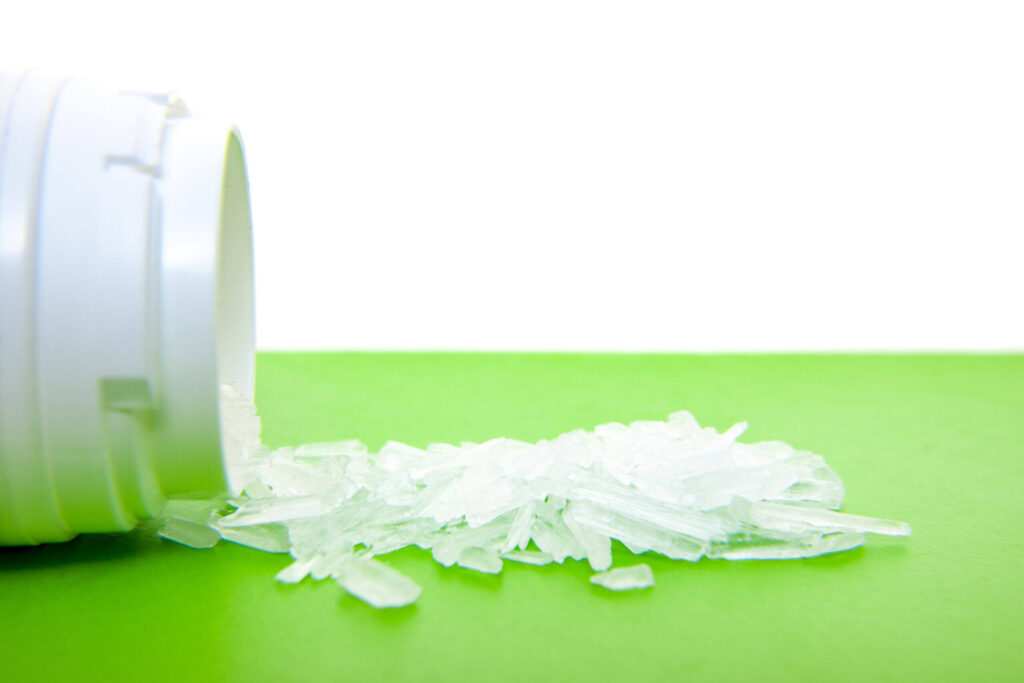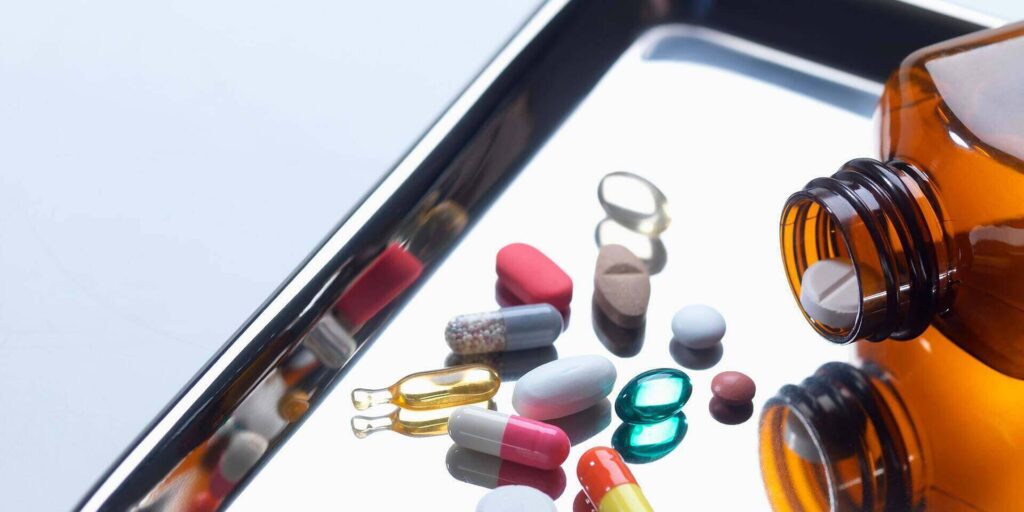Adderall is a strong stimulant prescription medication that has helped many people who have ADHD. It has been popularly abused for its cognitive-enhancing effects. Exploring Adderall addiction in the UK, or “Adderall UK,” presents a complex legal landscape. In the UK, Adderall is a class-B controlled substance.

Adderall has similar properties to other stimulant drugs. When taken, it stimulates the release of dopamine and other brain-enhancing chemicals. The release of these pleasurable chemicals reinforces a positive reaction to taking the medication.
The effects can be sought after by those that abuse stimulant drugs and amphetamines. It may also be tempting to try the drug for its cognitive boosting properties for those who are struggling with studying or work. However, with every ‘high’, there follows a low. This can lead to a vicious cycle of taking Adderall to avoid a comedown.
Whilst stimulant drugs aren’t typically known for their physically addictive properties, psychologically, a person can become dependent on them. Furthermore, with repeated abuse of Adderall, the brain starts to change, and this can lead to a full-blown addiction, whereby the element of ‘choice’ is removed.
What do they prescribe for ADHD in the UK?
1- Ritalin is methylphenidate and does not contain amphetamines. It is the first line of treatment for ADHD.
2- Lisdexamfetamine: this is a slow-acting version of dexamfetamine. It is usually the second-line treatment for ADHD. This is probably the closest thing to Adderall XR.
3- Dexamphetamine(DEX) IR. This is the IR version of DEX, which is most similar to the immediate release of Adderall because Adderall is 75% DEX anyway. This does not seem to be prescribed very often but can be found.
People with ADHD experience hyperactivity, impulsivity, and inattention in varying degrees 1
Prescription stimulants, such as Adderall, can also be used to treat conditions such as ADD (Attention Deficit Disorder) and narcolepsy.
Originally, Adderall was marketed as a weight-loss drug under the brand name Obetrol. However, due to concerns regarding its side effects and efficiency, Obetrol was withdrawn and is no longer prescribed.
When prescribed to treat ADD or ADHD, prescription stimulants should only be a part of a more comprehensive treatment plan

A treatment plan for ADHD and ADD should include:
- Education about ADHD and its causes
- Education about diagnosis
- Treatment options fully explained
- Behavioural therapy so that the individual can learn to regulate and manage the symptoms of their disorder
- Prescription stimulant medication such as Adderall or Ritalin
- Counselling for the individual and their family
- School or occupational input to account for the person’s ADHD 2

The effects of stimulant drugs on the brain: How Adderall works
Prescription stimulants such as Adderall work by increasing certain chemicals in the brain that regulate thinking and concentration.
The two active ingredients that Adderall contains, amphetamine and dextroamphetamine, are central nervous system stimulants. These stimulants increase the amount of dopamine and norepinephrine in the brain, helping to sharpen focus and attention and reduce impulsivity.
Dopamine, in particular, is extremely addictive and is mother nature’s feel-good chemical. The brain releases dopamine as a reward for engaging in life-enhancing behaviours such as socialisation, eating, love, nurture and exercise.
The differences between Ritalin and Adderall

Ritalin and Adderal are both stimulant drugs, but they contain different active ingredients.
Ritalin’s active ingredient is methylphenidate hydrochloride, whilst Adderall contains a combination of amphetamine and dextroamphetamine.
According to a 2018 meta-analysis, Ritalin is usually the most effective choice for children and adolescents with ADHD. For adults with ADHD, the analysis concluded that Adderall works the better out of the two 3
Both Ritalin and Adderall come with a whole host of possible side effects. Although the long-term side effects of use are unknown
Side effects of Adderall
Adderall comes with many possible side effects. While not everyone who takes it will experience these side effects, when the drug is abused, side effects become more likely and more pronounced.
The positive effects of Adderall are that it regulates brain activity, making you feel calmer, more alert, and more focused. When abused, a user will feel these positive effects and can also feel euphoric due to the influx of dopamine released in the brain.
Side effects of Adderall include:
- Decreased appetite
- Nausea
- Stomach pain and discomfort
- Restlessness
- Sleep disorders and insomnia
- Increased and rapid heart rate
- Nervousness
- Feeling light-headed and faint
- Headaches
- Dry mouth
- Irritability
- Anxiety
- Tremor
- Sexual dysfunction
- Changes in sexual desire and behaviour
You should always consult your doctor if any side effects become troublesome or persistent.
Serious side effects of Adderall include:
- Allergic reactions
- Anorexia
- Addiction
- Abnormal excitement
- Uncontrollable shaking
- Seizures
- Hallucinations
- Paranoia
- Intrusive thoughts
- Worsening of co-existing mental health conditions, including addiction, depression and anxiety
- Changes to eyesight
- Mania
- Worsening of current medical health conditions such as heart defects, high blood pressure and hyperthyroidism
- Fever
- Weakness or tingling and numbness in the limbs
- Stroke
- Heart attack
- Motor tics
- Dangerous increases blood pressure and heart rate 4
Serious side effects of Adderall will require immediate medical attention and discontinuation of the medication.
Adderall Withdrawal
Whilst a person following a prescription may only experience mild side effects that their doctor can monitor, someone, abusing or is addicted to a stimulant drug will experience moderate to severe stimulant withdrawal symptoms.
Symptoms of Adderall withdrawal can include:
- Restlessness and irritability
- Cravings
- Sleep difficulties – sleeping too much or too little
- Increased appetite
- Mood swings
- Inability to focus
- Short-term memory loss
- Anxiety
- Listlessness
- Panic attacks
- Lethargy
- Depression
- Suicidal thoughts or ideation
Moderate and severe withdrawal symptoms can be controlled and managed with a full medical detox. This can be accessed on an inpatient basis.
Symptoms of stimulant withdrawal usually pass within a few weeks. However, in cases of chronic Adderall abuse, a person can develop protracted withdrawal unless they undertake a medical detox.
Adderall and prescription stimulant drug abuse
Anyone who is prescribed Adderall is at risk of abusing it as they will be able to get the drug from their doctor and may see it as harmless. However, not everyone who takes prescription stimulants abuses them; other risk factors for abuse are also involved.
Risk factors for Adderall abuse include:
- Genetics – A family history of addiction, drug abuse and/or mental health illness
- Personality – Someone who has previously abused drugs or alcohol is more likely to abuse addictive prescription stimulant drugs
- Environmental factors – Childhood trauma or neglect, peer pressure, stress, loneliness, poverty
- Mental health illnesses or disorders – Someone who suffers from depression, anxiety, PTSD, etc., is more likely to abuse drugs in an attempt to self-medicate symptoms.
Some people who abuse drugs will get them from family members or friends. They may also purchase them from dealers, the dark web or the internet, where they can buy Adderall in the UK without a prescription.
Adderall and Alcohol
Adderall and alcohol are potentially a hazardous combination and should be avoided.
Drinking alcohol whilst taking Adderall or any prescription stimulant drug can decrease the medication’s ability to work. Alcohol can also increase the adverse side effects. 5
Mixing with alcohol can also increase your chances of experiencing heart problems such as cardiomyopathy 6
As stimulants make you feel more alert and awake, this can counteract alcohol’s sedative and depressant effects. This will increase your risks of alcohol abuse and alcohol poisoning.
Adderall and Other Drugs
Adderall is an amphetamine and, as such, can interact badly with certain drugs and prescription medications. For this reason, we always recommend full disclosure to your doctor before taking any medication.
You should also avoid Adderall if you are pregnant or breastfeeding. This drug and other stimulants are a particularly potent mix that can produce life-threatening side effects.
If you are abusing Adderall, you may be tempted to use a depressant drug such as a benzodiazepine, alcohol, opioid or cannabis to help you sleep. This toxic combination can lead to a cycle of abuse and addiction. It can also pose significant risks to your physical and mental health.
The dangers of Adderall abuse
Abusing a prescription amphetamine will increase your chances of suffering from dangerous side effects. You will also be at high risk of developing an addiction to Adderall.
Addiction is considered an incurable brain disease that is progressive in nature and life-threatening.
People who abuse Adderall may:
- Buy Adderall from the internet (dark web) without a prescription
- Take medication that does not belong to them
- Using this medication for weight loss
- Misuse a prescription
- Mix Adderall with alcohol or other drugs for a more significant effect
- Crush and snort the medication
- Use unprescribed Adderall to self-medicate mental health symptoms
- Take large quantities at one time
- Use different doctors to get more prescriptions (doctor shopping)
- Buy or use medication belonging to friends or family members who are prescribed it
- Use it recreationally (to get high)
- Use unprescribed Adderall specifically to improve performance at work or while studying.
All forms of Adderall abuse are dangerous and can lead to health complications, overdose and death.
If you or a loved one are abusing this or any other stimulant, you must seek the correct support to help you stop.
Signs of Adderall Addiction

Most people who develop an addiction to Adderall start out abusing the drug, either recreationally or as a study or work aid.
Students are particularly vulnerable to addiction. They use Adderall to pull all-nighters so they can cram in studying for an exam. Prescription stimulants are so popular with students that they are often referred to as “study buddies” or “smart drugs”.
Those who work long hours and night shifts may also be very tempted to abuse the drug to keep them awake and alert. Ultimately, this is a very treacherous and risky path.
Repeated abuse of stimulant drugs can lead to addiction. Through repeated exposure, the brain becomes accustomed to having a certain amount of the drug at all times. Furthermore, it becomes tolerant of its effects. This leads a person to increase the amount they are using.
Addiction drives a person to seek and take drugs.
Once the brain has become accustomed to having Adderall at all times to function normally, brain chemistry changes. The brain’s reward centre recognises it as the primary source of rewarding brain chemicals and prioritises it above other life-enhancing activities. When this happens, a person will be driven to seek and consume Adderall regardless of the risks involved or the possible consequences.
Spotting Adderall addiction is not always easy. However, there are some signs to look out for that would indicate you or a loved one have a real problem with this drug.
Signs of Adderall addiction include:
- Strong cravings
- Compulsively seeking and taking Adderall
- Repeated attempts to quit or moderate use
- Dilated pupils, unusually excited, energetic and enthusiastic
- Weight loss
- Changes in sleeping patterns
- Social withdrawal
- Preoccupation with getting and taking Adderall
- Suffering from withdrawal symptoms if unable to get Adderall
- Unable to function without the drug
- Negative consequences to social, occupational, financial, mental or physical health as a result of use
- Criminal activity
- Dishonesty around use
- Risky behaviour whilst under the influence
- Taking progressively more or mixing with other drugs regularly
Addiction is a treatable disorder. The sooner a person seeks help for an Adderall addiction, the better. The longer an addiction goes untreated, the more damage it causes to the person’s brain and their life.
Detoxing from Amphetamines
Whilst on the NHS, there is no specific medication to treat detoxing from stimulant drugs, a complete medical detox can be administered within a CQC-registered detox clinic or rehab. Reach out to Detox Plus UK to start your recovery journey.
Within a residential detox centre or rehab clinic, you will be administered approved medications to help ease withdrawal symptoms and reduce cravings for Adderall. These medications will be prescribed following a comprehensive doctor’s assessment on your arrival at the clinic.
For the duration of your Adderall detox, you will be monitored 24/7 by a multidisciplinary team of medical staff and therapists. This ensures that you are medically and psychologically supported throughout the process.
Furthermore, you can undergo a bespoke intensive rehabilitation programme after completing your detox. This will help to safeguard you against relapse and provide you with the tools and healing needed to live a happy and drug-free life.
Treatment options for Adderall addiction
Treatment for any addiction should always be bespoke. As humans, we all have varying needs and respond in different ways.
A rehabilitation programme needs to factor in a person’s medical, mental, emotional, behavioural and social treatment needs to be comprehensive. Furthermore, it needs to address the whole family unit and provide education and support to significant others. Any dual diagnosis or co-occurring mental health illnesses should ideally be addressed and treated simultaneously within the same treatment episode.
Unfortunately, free services are limited when it comes to treating stimulant addiction comprehensively. Services are disjointed and not intensive.
Whilst some people who abuse Adderall may be able to stop with the help of their local drug and alcohol team, those who have a chronic addiction will likely struggle a lot.
Fortunately, a comprehensive bespoke rehabilitation programme can be accessed privately through a residential treatment stay.
Rehab for Adderall addiction
Detox Plus UK offer affordable rehab treatment that is CQC-registered and highly regulated. Each treatment programme is uniquely tailored to your individual treatment needs and preferences.
What you can expect from our rehabilitation programmes:
- A bespoke medical detox for Adderall dependence
- 24/7 medical care and therapeutic support
- Treatments delivered by a multidisciplinary team of professionals
- All meals, treatments, accommodation and medications included
- The latest in evidence-based addiction treatments
- Intensive therapy to unearth and heal the root causes of addiction
- Addiction education
- Family programme
- Comprehensive treatment for dual diagnosis and co-occurring disorders
- Holistic treatment programmes and alternative therapies
- Comprehensive aftercare and discharge programme with continued support
- Relapse prevention programme
- Professional and efficient service at all times
How long you will need to spend in a rehab or detox facility will depend on your treatment needs. We always recommend an absolute minimum of 4 weeks. This gives the brain time to calibrate and you a chance to recuperate.
Call one of our friendly experts today for a free, confidential, no-obligation substance use assessment.
Adderall Q & A
No schema found.References:
- ADHD: Overview, characteristics and treatment
- Treatment overview – CHADD
- The Lancet
- Dextroamphetamine and Amphetamine
- Amphetamine (Adderall) NAMI
- Stimulant drugs of abuse and cardiac arrhythmias


